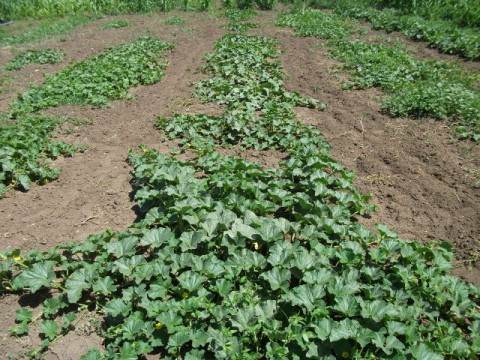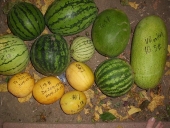I want to try and grow melons mostly for preserving, freezing, canning, drying, to have more fruit all year round. But I live in southern Ontario, which is a little colder than ideal.
I had heard somewhere that hybrid varieties might be best, so I might just pick up my seeds at the local TSC, or greenhouse.
Would you agree with this, does anyone know of anyone going any good work with cold resistant varieties?
Any suggestions on Watering? Normally, we do not do irrigation here, it is a moderately wet climate. And I am unsure if Melons will be really thirsty plants or not (they are sort of cactus like).
What are your opinions on species. I love watermelon, but its fruit is fairly insubstantial, or does it sort of balance. Will the average watermelon produce the same amount of food, just in a bigger container since it is saturated with water? Or are their species known to produce significantly more food from the same land area?
Do I have to worry about pollination? Or will one plant self pollinate no problem?
And general suggestions?
I am thinking of doing it with hills, filled with manure and
compost, which will provide some heating as well as nutrients. I think you are supposed to put like 4 plants per hill and then place the hills 6 feet apart (something like that). Also heard a lot about calcium deficiency, so unless anyone things this is a bad Idea was goign to try and put some bone meal in there as well.

 1
1




 2
2




 4
4


































































